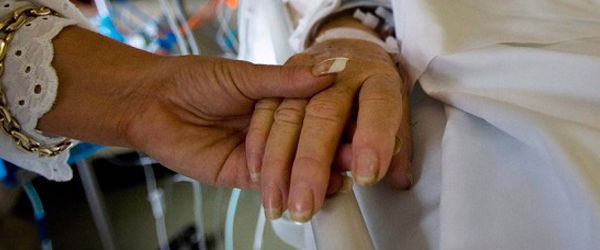It was the first time that Flora Ruiz was exposed to a segment of the Jewish community, and she was delighted and amazed to find out that there are many common grounds between her traditions in the Catholic faith and the Jewish traditions.
“I loved it!” exclaimed the longtime parishioner of Compton’s Sagrado Corazón Parish and graduate coordinator of student affairs of USC’s English department, about what she had heard minutes before from Dr. Holli Levitsky, associate professor of English and director of Jewish studies at Loyola Marymount University, and Margarita Flores, parish life director at Sagrado Corazón.
Both women presented their views on “Finding Hope in Challenging Times: Gathering Strength from Our Traditions,” the theme of the 35th annual Catholic-Jewish Women’s Conference, held Nov. 11 at Bishop Conaty-Our Lady of Loretto High School in L.A.
The conference, sponsored by the American Jewish Committee, the Board of Rabbis of Southern California and the Archdiocese of Los Angeles, was founded in 1977 when a group of women religious inspired by the 1965 Vatican II document Nostra Aetate, which repudiated anti-Semitism and promoted interfaith encounters, suggested a dialogue between Catholic and Jewish women. The first encounter was coordinated by a team led by Rabbi Alfred Wolf and Msgr. Royale Vadakin, now moderator of the curia.
The format consists of short presentations by two speakers, followed by questions and answers from the audience and group discussions.
Levitsky, a Detroit native of Polish descent, shared the challenges she faced when living for a year in Poland teaching a course about Jewish history and the “atrocities” of the Holocaust to mostly-Catholic students who had lost at least one family member in concentration camps.
“I asked myself, could I enter that interfaith conversation?” she said.
Raised in a reformed Jewish temple, she explained how, when touring a concentration camp in Poland where 79,000 people had been killed, she asked God for strength to understand the killing of more than six million Jews and for guidance to practice the Jewish faith and to raise her two young children in that environment.
The prayer led to a process of information-formation-transformation, she said, which gave her the knowledge and strength for an interfaith experience with her Christian and Catholic students. In the midst, she had to process how to reconcile with people who might have committed crimes against her own family or were “perpetrators or bystanders.”
“That Polish year was a self-revelation,” she admitted. “I began to understand different positions through my exchange with students, growing in values, meaning and purpose in my life, and in understanding others.”
Last spring Levitsky visited Israel with a group of LMU students and “witnessed each other in sacred moments.” A book of reflections stemmed from that trip as well as a poem that a student prepared using comments that 16 students shared on a blog during their trip.
In a similar approach, Flores shared her experience immigrating from Mexico “to a new world of opportunities,” growing up in a challenging environment in East L.A., surrounded by temptations at an early age, then marrying at 22, divorcing ten years later and becoming a single mother of six children, “fighting despair and self-esteem issues.”
In the midst of those challenges, she recalled the legacy left by her grandmother, whom she called Mom: “her prayers; a language of hope.”
Mentored by brave women such as Immaculate Heart of Mary Sister Anita Caspary (who was honored during the conference) and Holy Names of Jesus and Mary Sister Susan Maloney, Flores learned to “cultivate the power of inner change” in what she called her peregrinaje (pilgrimage).
Enrolling at Fuller Theological Seminary, she earned a master’s degree in divinity and after 30 years of working within parish settings was installed in 2009 in her position as parish life director, the first Latina to be named to that position in the archdiocese.
“There is a world ahead of us,” Flores told the mostly-female audience. “We have to bring down those isms that have separated and hurt us so much in this type of dialogue that challenges the evil.”
{gallery width=100 height=100}gallery/2011/1118/cathjewish/{/gallery}

